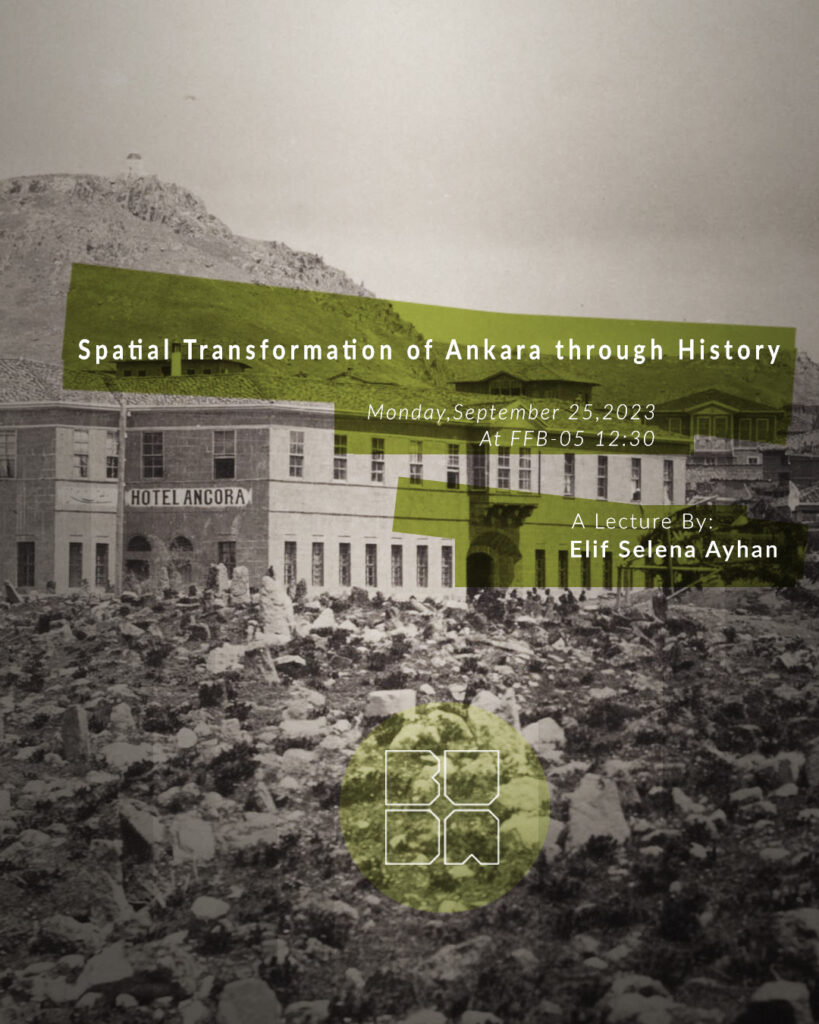
Historic towns, which are complex entities formed by continuous interaction between the physical environment and human activity, are the reflection of and witness to history and the product of culture shaped by society. Due to their complex and multi-layered characteristics, they can adapt to new orders of the world and sustain their heritage values through generations. Even though change is inevitable, and somehow could have a negative impact on the values ascribed to historic towns, it is an expression of how society defines itself. In this respect, it is crucial to understand the nature of the change to assess and manage its impact on the significance of historic towns. In order to sustain the cultural significance of these areas, an extensive urban restitution study should be conducted and conservation strategies should be developed accordingly.
With reference to the importance of urban restitution for conservation studies, this talk provides a background on the spatial transformation of Historic Ankara, which is considered as one of the most important towns in Anatolian geography with its cultural and physical stratification. Despite its unique characteristics, it is among the most vulnerable parts of the city due to the threat of rapid demolition. To understand the complex relationship that created this historic town and reveal its cultural significance, this research aims at defining an extensive urban restitution study. It mainly focuses on elements forming the town that have a traceable story and is structured under three main phases: Pre Ottoman, Ottoman, and Republican Periods. Each phase draws a critical overview of socio-cultural, political, and economic context with an emphasis on the role of major factors contributing to the emergence, transformation and change in Historic Ankara.
Biography:
Elif Selena Ayhan Koçyiğit is an urban designer specialized in conservation of cultural heritage. She has received her Bachelor’s degree in Department of Urban Design and Landscape Architecture from Bilkent University, and has a Master’s Degree in Architecture from Dessau Institute of Architecture (DIA)/ Germany. She holds a PhD in Conservation of Cultural Heritage from METU with the dissertation titled as “A Tale of Ulus Square: A Critical Assessment of Continuity, Transformation and Change in a Historic Public Open Space in Ankara”. Her research has been supported by Kaplan and ANAMED, Koç University-VEKAM, and Society of Architectural Historians. She has worked on Cultural Heritage of Civil Architecture in Ankara between 1930 and 1980 project supported by TUBITAK, and continues to work on the projects “The Architects Who Left Their Mark in Ankara” and “Memory Ankara”. Most recently, in 2021, she joined two National Architectural Project Competitions and won Equivalent Honorable Mention and 2nd Honorable Mention. Currently, she works as an assistant professor at Başkent University, Department of Architecture, and teaches undergraduate and graduate courses focusing on conservation and urban design. Her research interests are urban restitution, value assessment and conservation of historic sites, public open spaces and multi-layered towns.

